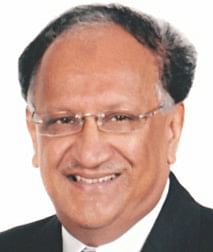Grooming private universities through a challenging framework

Students seeking higher education in the tertiary sector two decades back had their choices in either Public Universities or University Colleges under the National University and also the Open University. That scenario had started changing with the advent of Private Universities in Bangladesh which had its first footing in 1992.
Nearly eighty universities in the private sector are operating in Bangladesh currently. Not all of them have come of age. It takes time for any institution to grow and mature. There is the teething period where many hiccups have been observed. The first generation private universities were the forerunners who had cleared the woods, so to say. The second generation ones had emulated their predecessors and had relatively lesser problems to endure.
The regulatory bodies such as the Ministry of Education and the University Grants Commission had done their bit by arranging to produce a Private University Act once in 1992 and the other in 2010 through the Bangladesh Parliament and subsequently it became a law.
These Acts are in force presently and give the framework to the Board of Trustees in setting their educational institution in the market. At least ten of these universities who had been very serious from the beginning had shown positive results. The regulatory bodies had earlier sanctioned at least eight universities for showing no results.
So what is this grooming procedure that we want to discuss?
Rules and procedures: Every university has to prepare its Byelaws. This contains the rules and procedures by which a university is to be governed. It is a guideline following the Acts of Parliament and any university can add to these Byelaws keeping the spirit and essence of the Act. It incorporates various procedural rules including their amendments as adopted with the prior approval of the Board of Trustees, and gazette according to the provisions of the Private University Act-2010.
There are few ingredients such as Charter, Act, Board of Trustees and Officers which are clearly described and the Universities in the private sector are to follow very meticulously. They are as follows:
Every university is given 'The Charter' which is a formal approval granted by the Government of the People's Republic of Bangladesh to enable it to function as a fully fledged University as provided under the Private University Act-2010.
“The Act” which is the Private University Act 1992 (Act No. 34 of 1992) has been amended by the Private University (Amendment) Act 1998 (Act No. 3 of 1998) as amended by the Private University (Amendment) Act 2010 (Act No. 35 of 2010) and further amendments may be introduced by the appropriate authority from time to time. The Trust is registered under the Societies Registration Act (Act XXI of 1860) holding Certificate of Registration, and its subsequent amendments to be recognized as the sponsor of that University.
The “Board of Trustees” (BOT)consists of a minimum of nine and a maximum of twenty one members constituted as per Articles 15, 16 of the Private University Act -2010 and distinct from “The Trust”. This Board oversees the Syndicate and other bodies involved with the management of operations of the university.“Trustee” means a member of the “Board of Trustees.

The following Officers are present to administer the University. Although the Chancellor is not needed on a day to day basis, but his approval of three positions of the University (VC, Pro VC and the Treasurer) and his presence in the Convocation Ceremony to confer all kinds of degrees of the University is the most important ToR.
“The Chancellor” means the President of the People's Republic of Bangladesh functioning as the Chancellor of a private University as provided in Article 30 of the Private University Act-2010.
“The Vice Chancellor” means the Chief Executive of the University appointed by the Chancellor upon recommendation from the Board of Trustees according to the provisions of Article 31 of the Private University Act-2010.
“Officers” are persons with appropriate designations and charged with specific duties and responsibilities appointed by the Authority to carry out different functions:
a. The Vice Chancellor
b. The Pro Vice Chancellor
c. The Treasurer
d. The Registrar
e. The Proctor
f. The Controller of Examinations
g. The Deans of Schools
h. The Department Heads
i. The Directors of Graduate Studies
j. The Directors/Heads of Constituent institutions/Centres/Institutes
k. The Director of the Extension & Continuing Education Centre
l. The Director of Finance and Accounts
m. The Director, Planning and Development
n. The Director of Career, Guidance and Placement
o. The Director of Student Affairs
p. The Director of Media and Public Relations
q. The Librarian
r. In addition to the above members the University may appoint any other official required for the smooth functioning of the University.
“The Grants Commission” is constituted under the University Grants Commission of Bangladesh order, 1973 (P.O. NO. 10, 1973) performing such functions as provided under the Private University Act-2010, acronym UGC.
The major arms of the University is the Syndicate, Academic Council, various committees, Schools, Deans, Heads and Constituent Institutes which are described briefly as follows:
“The Syndicate” is the body constituted in pursuance of Article 17 of the Private University Act-2010 to function as the Board of Management.
“The Academic Council” is constituted by the University as provided under Article 14 and 19 of the Private University Act-2010 as one of the authorities for management.
“Finance Committee” is appointed by the University as provided under Article 14 and 25 of the Private University Act-2010 as one of the authorities of the University.
“University Management Committee” acronym UMC is appointed by the Syndicate of that University consisting of officials of the University headed by the Vice Chancellor and responsible for all executive.
“Planning and Development Committee” acronym P&D is appointed by the Syndicate and responsible for planning and implementation of the physical infrastructural development of the University.
“Purchase and Procurement Committee” acronym PPC is appointed by the Syndicate responsible for procurement of all major goods and services other than minor procurement within the delegated financial powers of the UMC.
“School of Study” is Schools for various studies established by the University.
“Department” means the academic departments into which the Schools of Study at any University are sub-divided.
“Dean of School” is the head of a School of Studies who oversees the management of the School.
“Head of Department” is the head of an academic department who oversees the management of the department.
“Faculty Selection Committee” is proposed by respective schools/ academic departments/ institutes approved by the Board of Trustees, and appointed by the University provided under Article 14 and 27 of the Private University Act-2010 as one of the authorities for the selection of faculty members for appointment by the University.
“Administrative Selection Committee” is proposed by respective schools /academic departments/centers /institutes/ administrative units approved by the Board of Trustees, and appointed by the University provided under Article 34 of the Private University Act-2010 as one of the authorities for the selection of members of the administration for appointment by the University.
“Constituent Institution” is established by the University, in accordance with the provisions of the Statutes and the Private University Act, 2010 and subsequent amendments.
Accreditation Council: According to Article 38 of the Private University Act-2010 the Government is expected to set up a separate and independent Accreditation Council towards fulfilling the objects of the Private University Act-2010.
The national Accreditation Council set up under Article 38.1 is expected to discharge the responsibilities vested in them in accordance with the specified rules and regulations of the Private University Act 2010.
Any University is expected to follow the suggestions of the Accreditation Council while forming its courses and curricula as well as other rules and procedures in order to maintain quality and effectiveness.
The University will establish a cell or unit to observe the progress of improvement of quality of education, advice the University management, Syndicate and Board of Trustees to take appropriate actions for further improvement which will be reported in the Annual Report of the University.
Source of funds: The Private University Act-2010, Article 41 provides that the source of funds is expected to be as follows:
- Unconditional Donation from any philanthropic individuals, Groups of People, and charitable trusts.
- Loans and donations obtained from any philanthropic individuals, Groups of People, charitable trusts or the Government.
- Fees received from the students.
- Income generated by the University itself.
- Any other sources approved by Government or the University Grants Commission.
As per the Private University Act-2010, Article 42, fees chargeable to the students should be compatible with the socio-economic condition of the country but sufficient to cover the justifiable operational costs of the University.
Universities will prepare a tuition fees structure and forward the same to the University Grants Commission for information. If necessary, UGC can provide its suggestions on the same to the University.
As per the Private University Act-2010 Article 43, Service rules, salary structure etc. will be prepared by the University management in accordance with its statutes and other relevant rules and will be forwarded to the University Grants Commission for their information.
What have been presented above are not sufficient but presented to the reader to make them aware of the Act(s) and what the major actors are supposed to do to run a university. Those who are meticulously following the rules and regulations have shown success. The regulatory bodies are monitoring the universities and a little more effort could improve the situation further.
The wirter is Registrar of IUB.

 For all latest news, follow The Daily Star's Google News channel.
For all latest news, follow The Daily Star's Google News channel. 



Comments